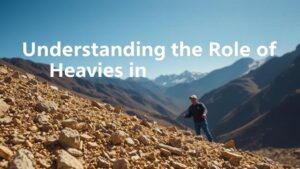Legal Requirements for Prospecting on Another Person’s Claim
Legal Requirements for Prospecting on Another Person’s Claim
Prospecting on another person’s mining claim can lead to serious legal issues if not conducted properly. Understanding the legal framework that governs mining activities is essential for anyone considering prospecting in such areas. In this article, we will explore the legal requirements, potential pitfalls, and best practices for prospecting on someone elses claim.
Understanding Mining Claims
A mining claim is an area of land for which a public land ownership certificate has been granted for the extraction of minerals. In the United States, mining claims are regulated under the General Mining Law of 1872, which provides the legal framework for both prospectors and claim holders.
Legal Framework Governing Prospecting
Conducting prospecting activities on another person’s claim is not just a matter of ethics; it is governed by a complex web of federal, state, and sometimes local laws. Here are the primary legal considerations:
- Ownership Rights: A valid mining claim grants the owner exclusive rights to the minerals beneath the surface. Prospectors must obtain permission from the claim owner to explore or extract any material.
- Trespassing Laws: Prospecting without the owner’s permission constitutes trespassing, which can lead to civil lawsuits and potential criminal charges.
- Permitting and Regulations: Various regulatory frameworks may require additional permits before practical prospecting can begin, even if you have permission from the claim owner.
Obtaining Permission
Before initiating any prospecting activities on another person’s claim, it is crucial to obtain explicit permission. This is often formalized through a written agreement. Here’s why this step is critical:
- Legal Protection: Written consent acts as a legal safeguard should any disputes arise in the future.
- Clear Expectations: A formal agreement helps outline the terms of the prospecting, including financial arrangements and responsibilities for damages.
Case Study: The Effects of Ignoring Legal Requirements
A notable case highlighting the consequences of ignoring legal requirements is the case of United States v. Smith, where a prospector conducted unauthorized excavations on a valid claim. This led to criminal charges, hefty fines, and damages in excess of $250,000 awarded to the claim holder. The repercussions underscore the importance of adhering to legal protocols when prospecting on someone elses claim.
State-Specific Regulations
While federal laws provide a foundation, state regulations can vary significantly. For example, California requires prospectors to file a notice of intent to work, whereas Nevada has different stipulations regarding the size and length of claims. It is essential to familiarize yourself with the specific laws of the state in which you intend to prospect.
Best Practices for Ethical Prospecting
To engage in ethical prospecting and avoid legal pitfalls, consider the following best practices:
- Research Claims: Use resources like the Bureau of Land Management (BLM) databases to verify claim ownership before proceeding.
- Document Everything: Keep records of all communications with claim owners and agreements related to prospecting activities.
- Stay Informed: Regularly update your knowledge of local, state, and federal mining laws to ensure compliance.
Conclusion and Actionable Takeaways
Prospecting on another person’s claim can lead to both valuable discoveries and significant legal complications if approached incorrectly. By understanding ownership rights, obtaining permission, and adhering to relevant regulations, prospective miners can protect themselves legally and ethically. Regularly consulting legal resources and keeping lines of communication open with claim holders will foster not only legal compliance but also a respectful mining community.

